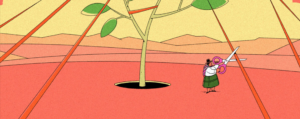Guatemala’s Attorney General’s Office, Congress, and Supreme Court have taken new steps to undermine the rule of law and the rights of Guatemalans, the Washington Office on Latin America (WOLA) and Human Rights Watch said today. Foreign governments, including from the United States, the European Union, and Latin America, should remain vigilant and condemn these attempts to overturn the results of the 2023 presidential elections and to persecute opposition leaders and human rights defenders.
On November 16, 2023, the Attorney General’s Office requested 27 arrest warrants against activists, students, academics, human rights defenders, and a member of the Semilla Movement, the political party of President-Elect Bernardo Arévalo. The office also asked the Supreme Court to lift the immunity of Arévalo and Vice-President Elect Karin Herrera so they could be investigated for allegedly promoting a student protest. Meanwhile, members of Congress, whose terms end in January 2024 swiftly appointed a new Supreme Court after a process marred with irregularities.
“Pressure from Indigenous groups, other protesters on the streets, and diplomats has been key to ensuring that political actors and government institutions don’t overturn the election results,” said Juan Pappier, Americas deputy director at Human Rights Watch. “The government’s latest machinations demonstrate the urgent need for continued and increased international scrutiny.”
These decisions follow a range of legal maneuvers by the Attorney General’s Office and other actors to undermine the right to vote and harass Arévalo and other members of the Semilla Movement. Arévalo, an anti-corruption candidate, won the presidential elections against Sandra Torres of the Unidad Nacional de la Esperanza (UNE) in August for a four year presidential term beginning January 14, 2024.
As of November 16, five of the 27 people had been arrested, including a former Semilla Movement candidate for Congress Marcela Blanco and the academics Rodolfo Chang Shuma, Eduardo Antonio Velásquez Carrera, Javier De León, and Alfredo Enrique Beber. The Attorney General’s office has accused all 27 of “unlawful association” and “sedition,” among other crimes, for participating in largely peaceful protests against the 2022 election of a dean at the San Carlos University, Guatemala’s main public university. The protesters alleged that the election had been marred with irregularities. Under Guatemalan law, deans play important roles in the nomination of magistrates and the Attorney General.
A waiver of immunity for Arévalo and Herrera and other members of Congress of the Semilla Movement would allow the Attorney General’s Office to criminally investigate them for their alleged “promotion” of the San Carlos University demonstrations through social media and purported use of the university as a political “platform.” Under Guatemalan law, candidates and elected officials have immunity from criminal prosecution.
Separately, on November 15, members of Congress appointed new magistrates of the Supreme Court on the basis of a short list of candidates that, according to investigations by independent Guatemalan prosecutors, appears to have been the result of influence peddling and bribes.
The new Supreme Court magistrates will replace those who were appointed in 2014 and whose terms expired in 2019. Congress had so far failed to appoint new justices amid allegations of irregularities, but swiftly appointed the new judges two months before a new Congress is expected to take office.
The 13 magistrates appointed include three—Oscar Ruperto Cruz, Carlos Humberto Rivera and José Luis de Jesús Samayoa—who had been investigated for their role in influence peddling during the nomination process. They also include Manuel Duarte Barrera, whom the United States has sanctioned for undermining “democratic processes or institutions by abusing his authority to inappropriately influence and manipulate the appointment of judges to high court positions.” According to a 2020 report by the Attorney General’s Office, several others have faced criminal investigations.
On November 15, the current Supreme Court green-lighted a proceeding to waive the immunity from criminal prosecution of a high-level member of the Supreme Electoral Tribunal. He is under investigation for refusing to comply, in July, with a dubious and seemingly politically motivated judicial order to suspend Semilla’s legal registration. Days later, the Constitutional Court suspended the judicial order, ruling that the judge could not put the August 20 election on hold. The Supreme Electoral Tribunal suspended the legal registration of Semilla on November 2.
The Permanent Council of the Organization of American States (OAS) approved on November 15 a resolution urging the Guatemalan judicial, legislative and executive branches to take action to end “any act of intimidation against electoral authorities, the Semilla Movement party [and] those who have been elected.” The OAS has repeatedly condemned the “excessive judicialization” of the electoral process in Guatemala and called on the authorities to stop interfering in the elections and respect the will of the people.
Foreign governments, including from the United States, the European Union and Latin America, should publicly and privately call on President Alejandro Giammattei to condemn the Attorney General’s Office’s moves that undermine the political rights of Guatemalans, Human Rights Watch and WOLA said.
They should also urge key actors from Guatemala’s business sector, including leaders in the Coordinating Committee of Chambers of Commerce, Industry and Finance (Comité Coordinador de Cámaras Comerciales, Industriales y Financieras, CACIF), to speak up in favor of democracy and the rule of law, the organizations said.
On November 16, the United States State Department announced it was imposing visa restrictions on 11 people from Guatemala following the Attorney General’s Office’s “plans to file charges against President-elect Arevalo and Vice President-elect Herrera, as well as members of the Semilla party and other opposition members.”
Foreign governments should consider expanding sanctions against people who are actively engaged in efforts to undermine the rule of law in Guatemala, including by examining the responsibility of businesspeople.
“There’s every reason to fear that attempts to block Bernardo Arévalo and Karin Herrera from taking office take office on January 2024 will intensify” said Ana María Méndez Dardón, WOLA’s director for Central America. “Governments in Latin America, Europe and the United States should continue to take concrete actions to protect democratic institutions and the will of Guatemalans.”

